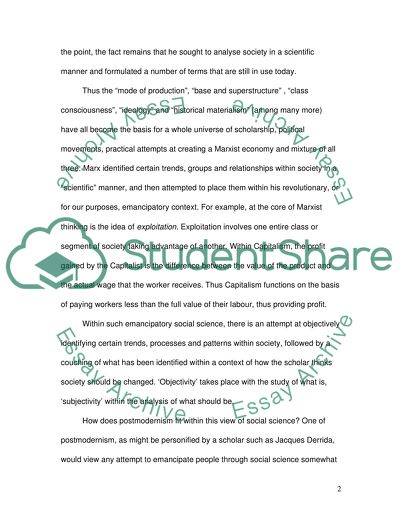Cite this document
(“Postmodernism Essay Example | Topics and Well Written Essays - 2750 words”, n.d.)
Retrieved from https://studentshare.org/sociology/1523536-postmodernism
Retrieved from https://studentshare.org/sociology/1523536-postmodernism
(Postmodernism Essay Example | Topics and Well Written Essays - 2750 Words)
https://studentshare.org/sociology/1523536-postmodernism.
https://studentshare.org/sociology/1523536-postmodernism.
“Postmodernism Essay Example | Topics and Well Written Essays - 2750 Words”, n.d. https://studentshare.org/sociology/1523536-postmodernism.


